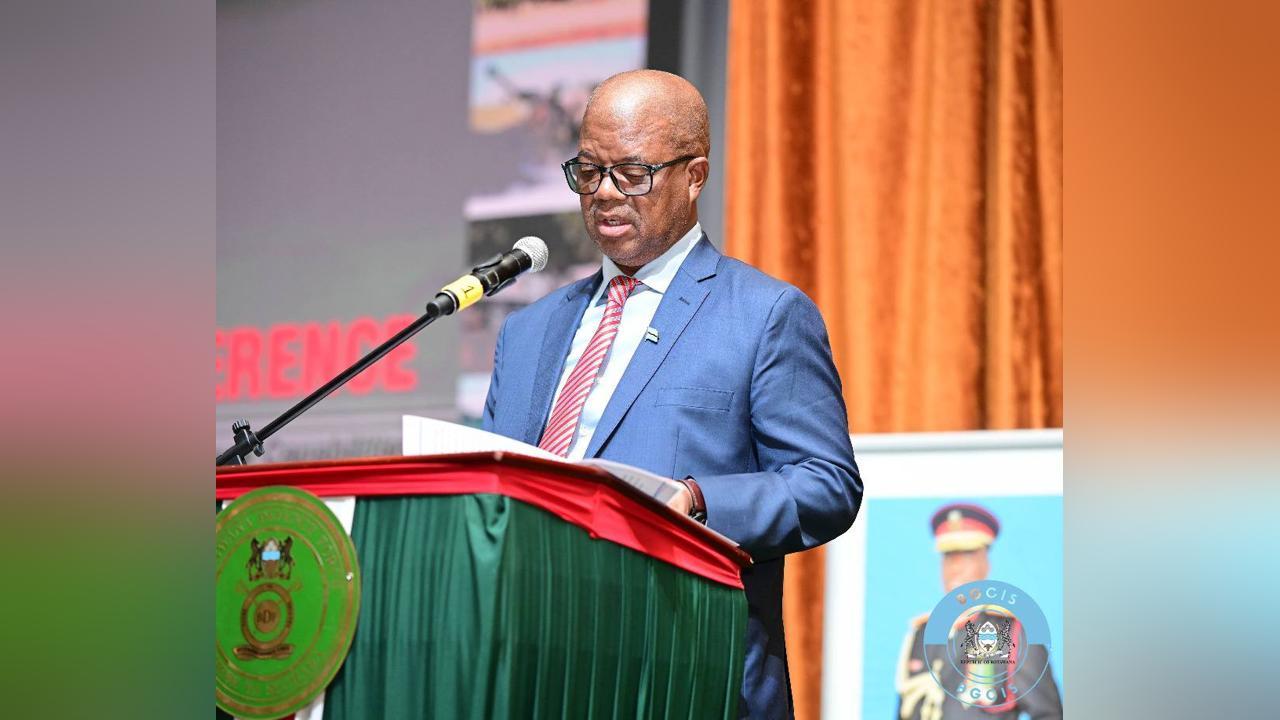Africa-Press – Botswana. There is need to establish a legal framework for the regulation of import, export and transfers of conventional arms within the country in line with the United Nations Arms Trade Treaty and other relevant international conventions.
This was said by the Minister for State President, Mr Moeti Mohwasa when presenting the Conventional Arms Control Bill 2025, for second reading in Parliament yesterday.
“The object of the Bill is to give effect to the Arms Trade Treaty to all state parties to establish and maintain national control systems for the regulation of conventional arms transfers, ensure compliance with international obligations and consider violations of human rights” he explained.
Mr Mohwasa also added that the Bill established a comprehensive legislative framework for the regulation of transactions involving conventional arms and for the establishment and functioning of the National Conventional Arms Control Authority.
Part one of the Bill, he said provided for the short title, commencement, interpretation, objects of the Act and its application to the state, whilst part two established the National Convention’s Arms Control Authority, outlined its objectives and functions and also provided for the establishment of a committee composed of representatives from relevant ministries.
This part, he said further sets out provisions relating to; meetings, sub-committees, disclosure of interests and secretariat support. Part three of the Bill, Minister Mohwasa said provided for the appointment and powers of inspectors, including authority to conduct inspections, enter and search for premises with, or without a warrant, seize conventional arms and dispose off seized items. Additionally, he said it addressed cooperation with inspectors and the police, as well as the obligation to furnish information.
“Part four prohibits the possession and trade of conventional arms, without a valid permit. It sets out procedures for permit applications and specifies exceptions to the prohibition on possession,” said the minister.
He said part five regulated the export and import of conventional arms, and required the submission of end-use and end-user certificates to guard against the diversion of arms to unauthorised recipients or uses. Furthermore, the minister explained that the final part of the Bill, which is Part 6, provided for record-keeping obligations of authority, in accordance with the treaty.
Mr Mohwasa also noted that part six also regulated brokering activities, procuring permits for such activities, requiring payments for such activities and backdated the submission of periodic reports to the UN and other relevant bodies. This part, he said further empowered the minister to make regulations and amend the schedule, which contained the national control list.
The list, he explained “sets out the categories of arms considered to be conventional arms, for the purposes of this Bill, and reflects those listed under Article 2 of the Arms Trade Treaty.”
The Arms Trade Treaty is a legally binding international agreement that regulates international trade in conventional arms, to prevent and eradicate illicit trade, for the promotion of regional and international security.
For More News And Analysis About Botswana Follow Africa-Press






